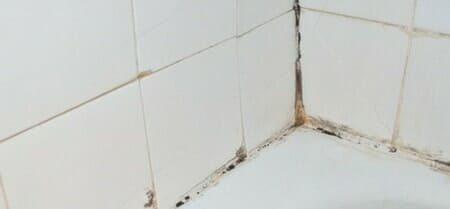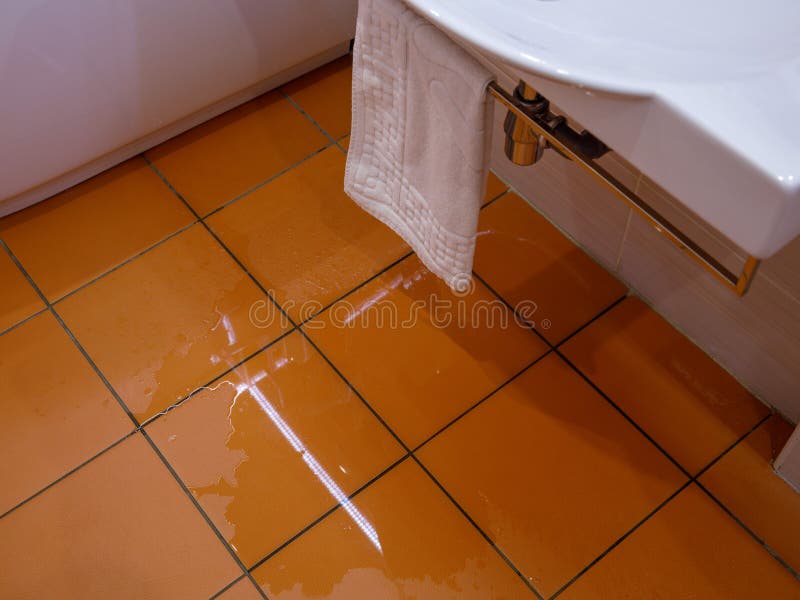Why Bathroom Moisture Causes Water Harm
Why Bathroom Moisture Causes Water Harm
Blog Article
What're your ideas with regards to How to Repair and Prevent Bathroom Water Damage??

Water damage usually happens in the shower room due to the water utilized day-to-day. Sometimes, the damage could be a little mold from the shower. Various other times, it's substantial damage on your floor. Whatever it is, it is always excellent to recognize the cause and stop it before it occurs.
This overview will certainly experience a few of the typical sources of water damage in the washroom. We will certainly also examine what you can do to prevent these causes from damaging your bathroom. Allow's dive in.
5 Typical Root Causes Of Water Damage in Washrooms
These are the usual reasons you would have water damage in your bathrooms and how you can spot them:
Ruptured or Dripping Pipes
There are several pipelines bring water to various parts of your washroom. Some pipelines take water to the toilet, the sink, the taps, the shower, and many other places. They crisscross the tiny location of the bathroom.
From time to time, these pipelines can obtain rustic and burst. Various other times, human activity might cause them to leak. When this occurs, you'll find water in the edges of your washroom or on the wall surface.
To find this, look out for bubbling wall surfaces, mold and mildews, or mildew. Call an expert emergency plumber to repair this when it takes place.
Fractures in your wall floor tilesv
Washroom wall tiles have been particularly created for that function. They protect the wall from dampness from people taking showers. However, they are not undestroyable.
Often, your shower room wall floor tiles fracture and permit some wetness to seep right into the wall. This can potentially ruin the wall surface if you don't take any activity. If you notice a fracture on your wall tiles, fix it quickly. Don't wait until it ruins your wall.
Overflowing bathrooms and also sinks
As human beings, in some cases we make errors that can trigger some water damage in the washroom. For instance, leaving your sink faucet on might create overflowing as well as damage to various other parts of the restroom with dampness.
Also, a malfunctioning toilet might create overflowing. As an example, a broken toilet handle or various other parts of the cistern. When this occurs, it can damage the floor.
As quickly as you see an overflowing sink or commode, call a plumbing technician to aid handle it quickly.
Roofing system Leakages
Sometimes, the issue of water damage to the restroom may not originate from the bathroom. For instance, a roof covering leakage might create damages to the washroom ceiling. You can identify the damages done by looking at the water stains on the ceiling.
If you discover water discolorations on your ceiling, examine the roof to see if it's damaged. Then, call an expert to help resolve the problem.
Excess Wetness
It's trendy to have that lengthy shower and splash water while you dance around as well as imitate you're carrying out, yet occasionally these acts could cause water damage to your restroom.
Splashing water around can trigger water to visit corners as well as create mold and mildews. Watch how you spread out excess moisture around, and also when you do it, clean it up to stop damages.
Verdict
Water damage to your washroom can be bothersome. Nevertheless, you can handle it if you avoid a few of the causes discussed in this guide. Call a professional emergency situation plumber if you discover any severe damages.
How to Prevent Water Damage in Your Bathroom?
Water damage repair is an expensive, meticulous, and lengthy process. Unfortunately, bathrooms are the most susceptible rooms to water damage due to toilets, showers, and sinks. Pipes and fixtures wear out over time and are not immune to damage. But all is not lost, as there are ways to prevent water damage from occurring in your bathroom.
Check Your Plumbing
Nothing lasts forever, especially pipes, which can rust and begin leaking over time. You should periodically conduct pipe inspections and pay attention for any musty smells or water stains that may indicate you need water damage repair. Here are some things to check:
Frequently test valves for your toilet, shower, and sink to ensure they are properly working.
Check faucet supply lines hidden under vanities and replace when needed.
Replace cracked or deteriorating caulking along sinks, tubs, and showers.
If you notice a clog in your sink, call in a professional.
Since you can’t check the pipes in the wall, keep an eye out for stains, drywall bubbling, musty smells, and excess moisture; if the bathroom is on a second level, check the ceiling of the room directly below for these signs.
Don’t Overwork Your Toilet
One of the most common reasons bathrooms need water damage repair is due to overflowing toilets. Save yourself the hassle of cleanup by being mindful and not pushing your toilet to extreme limits. If you have young children, it is especially important to keep an eye on them when they are in the bathroom and to teach them how to avoid clogging the toilet. Here are some more tips to help prevent your toilet from overflowing:
If you have a septic tank, only use septic-safe toilet paper
Do not flush anything down the toilet besides toilet paper; items like diapers and sanitary napkins will clog the piping
Pay attention to your toilet’s water level: If it’s low, it could mean it is partially clogged or that there is a crack in the toilet bowl
https://www.alure.com/home-improvements-blog/resources/how-to-prevent-water-damage-in-your-bathroom

How to Prevent Water Damage in Your Bathroom?
Water damage repair is an expensive, meticulous, and lengthy process. Unfortunately, bathrooms are the most susceptible rooms to water damage due to toilets, showers, and sinks. Pipes and fixtures wear out over time and are not immune to damage. But all is not lost, as there are ways to prevent water damage from occurring in your bathroom.
Check Your Plumbing
Nothing lasts forever, especially pipes, which can rust and begin leaking over time. You should periodically conduct pipe inspections and pay attention for any musty smells or water stains that may indicate you need water damage repair. Here are some things to check:
Don’t Overwork Your Toilet
One of the most common reasons bathrooms need water damage repair is due to overflowing toilets. Save yourself the hassle of cleanup by being mindful and not pushing your toilet to extreme limits. If you have young children, it is especially important to keep an eye on them when they are in the bathroom and to teach them how to avoid clogging the toilet. Here are some more tips to help prevent your toilet from overflowing:
https://www.alure.com/home-improvements-blog/resources/how-to-prevent-water-damage-in-your-bathroom
As a devoted person who reads on How to Repair and Prevent Bathroom Water Damage?, I was thinking sharing that excerpt was sensible. Sharing is good. You never know, you may be doing someone a favor. Thanks so much for going through it.
Emergency? We're here! Report this page